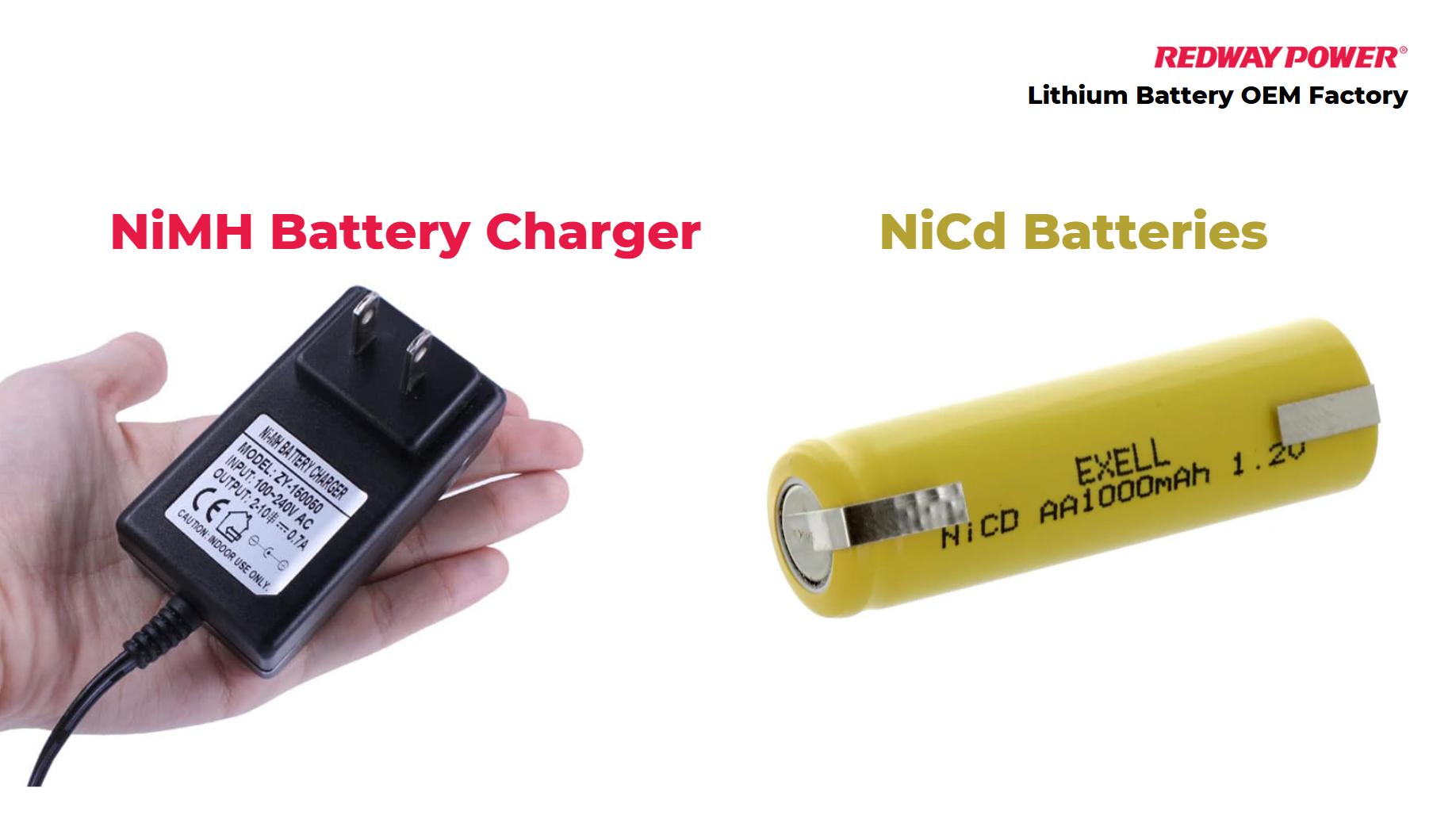Charging NiCd batteries with a NiMH charger is generally not recommended due to differences in charging characteristics and requirements. While it might be possible in some cases, using the wrong charger can lead to overcharging, reduced battery life, and safety hazards.
Can you charge NiCd batteries with a NiMH charger?
Yes, you can charge NiCd batteries with a NiMH charger, but it is not advisable without caution. The charging profiles for these two battery types differ significantly. A NiMH charger may not detect when a NiCd battery is fully charged, potentially leading to overcharging and damage.Chart: Compatibility Overview
| Charger Type | Compatible Battery Type | Notes |
|---|---|---|
| NiMH Charger | NiMH | Optimized for voltage drop detection |
| NiCd Charger | NiCd | Designed for specific charging profiles |
| Both | Limited compatibility | Risk of overcharging if not monitored |
What are the key differences between NiCd and NiMH batteries?
NiCd batteries have a lower energy density compared to NiMH batteries, which offer higher capacity and less memory effect. NiCd batteries contain toxic cadmium, while NiMH batteries are more environmentally friendly. Additionally, NiCd can perform better in extreme temperatures but has a higher self-discharge rate.
NiCd (Nickel-Cadmium) and NiMH (Nickel-Metal Hydride) batteries have distinct characteristics that affect their charging:
- Voltage Levels: Both types have similar nominal voltages (1.2V), but their internal resistance and charging profiles differ.
- Memory Effect: NiCd batteries are more susceptible to memory effect, which can reduce their effective capacity if not fully discharged before recharging.
- Energy Density: NiMH batteries typically offer higher energy density compared to NiCd, allowing them to store more energy in the same size.
Chart: Key Differences
| Feature | NiCd | NiMH |
|---|---|---|
| Voltage | 1.2V | 1.2V |
| Memory Effect | Yes | Minimal |
| Energy Density | Lower | Higher |
What are the risks of charging NiCd batteries incorrectly?
Incorrectly charging NiCd batteries can lead to overcharging, causing overheating, leakage, or even explosion. It may also result in reduced battery life and capacity due to the memory effect. Proper monitoring during charging is essential to prevent these risks.
Charging NiCd batteries incorrectly can lead to several risks:
- Overcharging: If the charger does not cut off at the right time, it can cause overheating, leakage, or even rupture.
- Reduced Lifespan: Continuous overcharging can degrade battery performance and shorten its lifespan.
- Safety Hazards: Overcharged batteries may release toxic gases or catch fire, posing safety risks.
Chart: Risks of Incorrect Charging
| Risk | Description |
|---|---|
| Overcharging | Leads to overheating and potential rupture |
| Reduced Lifespan | Degrades performance over time |
| Safety Hazards | Risk of gas release or fire |
How to safely charge NiCd batteries?
To safely charge NiCd batteries, use a charger specifically designed for them. Monitor the charging time, ideally at C/10 for 16 hours, and avoid exceeding recommended voltages. Always ensure proper ventilation and avoid leaving the battery unattended during charging.
To safely charge NiCd batteries, follow these guidelines:
- Use the Correct Charger: Always use a charger specifically designed for NiCd batteries.
- Monitor Charging Time: Avoid leaving the battery on charge longer than necessary; refer to manufacturer recommendations.
- Check Temperature: If the battery becomes excessively hot during charging, disconnect it immediately.
- Avoid Deep Discharges: Regularly recharge before the battery is fully discharged to prolong its life.
Chart: Safe Charging Practices
| Practice | Description |
|---|---|
| Use Correct Charger | Ensure compatibility with battery type |
| Monitor Charging Time | Follow manufacturer guidelines |
| Check Temperature | Disconnect if overheating occurs |
| Avoid Deep Discharges | Recharge regularly to maintain battery health |
When should you use a dedicated charger for each type?
Use a dedicated charger for each battery type whenever possible. This ensures optimal charging conditions tailored to the specific chemistry, preventing damage and maximizing battery life. Using the correct charger also enhances safety by reducing risks associated with overcharging or incorrect voltage levels.
You should always use a dedicated charger for each type of battery in these scenarios:
- When you want to ensure optimal performance and longevity of your batteries.
- If your charger does not have specific settings for both types of batteries.
- When dealing with high-capacity or sensitive applications where safety is paramount.
Expert Opinions
“While it may be technically feasible to charge a NiCd battery with a NiMH charger, doing so can lead to significant risks,” says Dr. Sarah Thompson, an energy storage specialist. “Using the appropriate charger is crucial for maintaining battery health and ensuring safe operation.”
Is It Possible to Charge a NiCd Battery with a NiMH Charger?
While it is technically possible to charge a NiCd battery with a NiMH charger, it is not advisable due to differing charging requirements. Using the wrong charger can result in inadequate charging or battery damage, so it’s best to use chargers designed specifically for each battery type.
Conclusion
Charging NiCd batteries with a NiMH charger is generally not recommended due to significant differences in their charging requirements and potential safety hazards. For optimal performance and safety, always use chargers designed explicitly for each battery type.
Frequently Asked Questions
- Can I use my old NiCad charger for my new NiMH batteries?
It’s best to use a dedicated NiMH charger for optimal performance. - What happens if I accidentally charge my NiCad battery with a NiMH charger?
It could lead to overcharging and damage your battery. - How can I tell if my battery is damaged from incorrect charging?
Look for signs like swelling, leakage, or reduced capacity. - Is it safe to leave my battery on charge overnight?
Only if using a smart charger designed to prevent overcharging; otherwise, monitor closely. - What should I do if my battery gets hot while charging?
Disconnect it immediately and allow it to cool down before further use.



